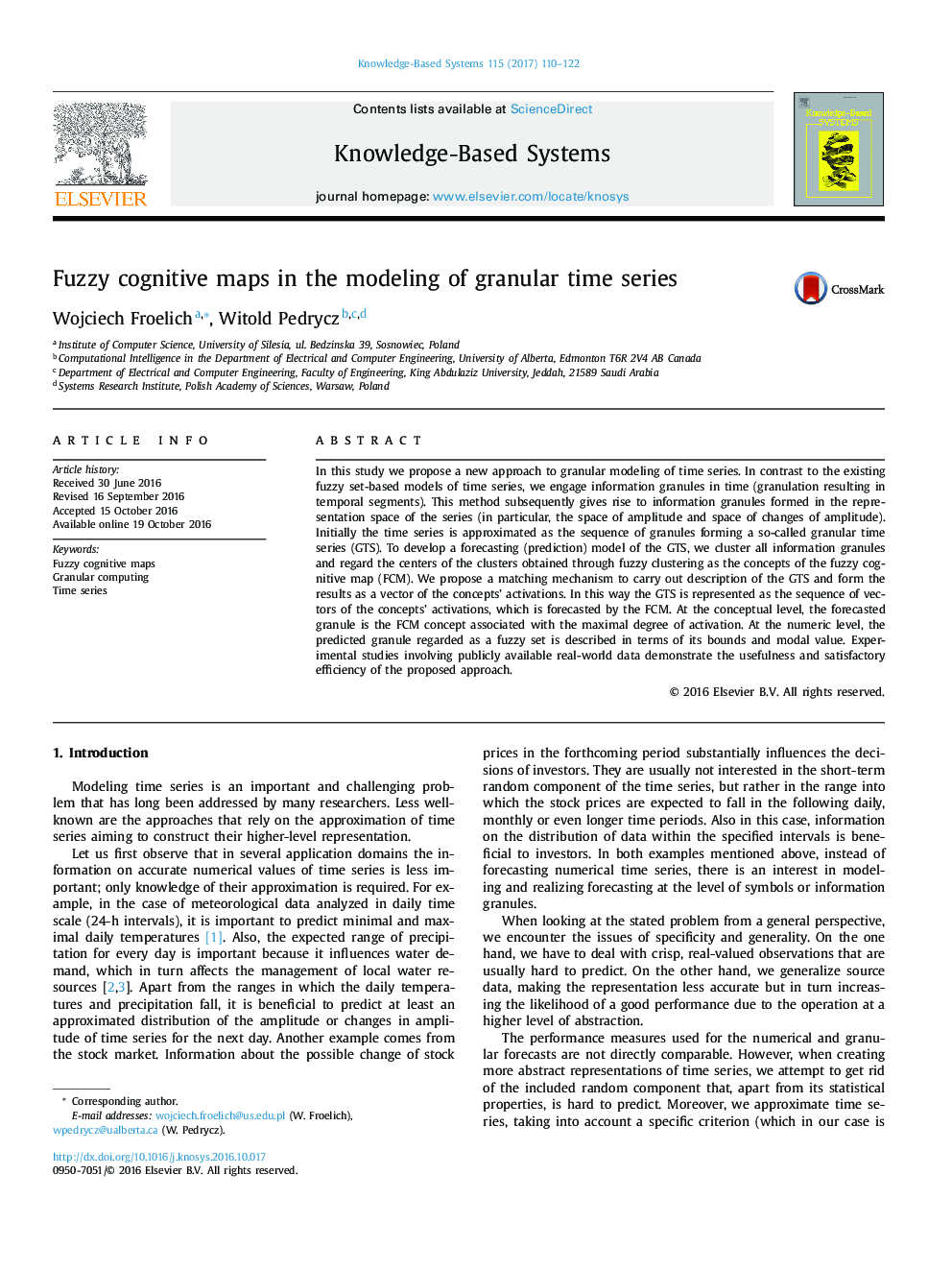| Article ID | Journal | Published Year | Pages | File Type |
|---|---|---|---|---|
| 4946494 | Knowledge-Based Systems | 2017 | 13 Pages |
In this study we propose a new approach to granular modeling of time series. In contrast to the existing fuzzy set-based models of time series, we engage information granules in time (granulation resulting in temporal segments). This method subsequently gives rise to information granules formed in the representation space of the series (in particular, the space of amplitude and space of changes of amplitude). Initially the time series is approximated as the sequence of granules forming a so-called granular time series (GTS). To develop a forecasting (prediction) model of the GTS, we cluster all information granules and regard the centers of the clusters obtained through fuzzy clustering as the concepts of the fuzzy cognitive map (FCM). We propose a matching mechanism to carry out description of the GTS and form the results as a vector of the concepts' activations. In this way the GTS is represented as the sequence of vectors of the concepts' activations, which is forecasted by the FCM. At the conceptual level, the forecasted granule is the FCM concept associated with the maximal degree of activation. At the numeric level, the predicted granule regarded as a fuzzy set is described in terms of its bounds and modal value. Experimental studies involving publicly available real-world data demonstrate the usefulness and satisfactory efficiency of the proposed approach.
